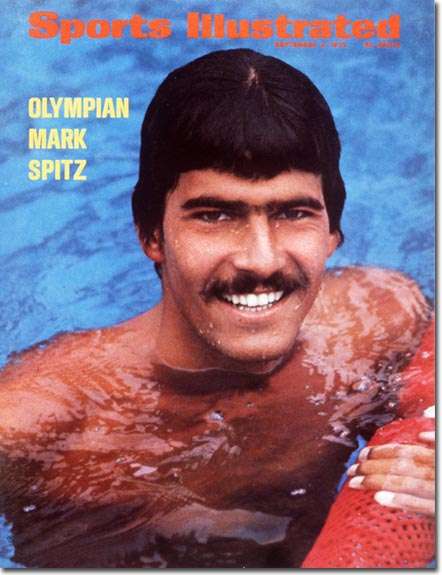It’s Right Under Your Nose
Men want them to be longer, thicker, more virile — it’s better than “köse.” And in some cases, those afflicted with köse are even considering implants.
Köse, though, isn’t something you’ll find on a website you’d best not be looking at from your office. You won’t find it on WebMD or in a medical dictionary, either. It’s something you’ll find in a Turkish dictionary, though. It means “baldness of the face,” according to BusinessWeek, referring to the men out there who can’t seem to grow a mustache. In Turkey and in other parts of the Middle East, a full-bodied mustache is so important, not having one has a slur of its own.

Mustaches in the Middle East and surrounding areas (and for 1970s era Olympic swimmers?, such as Mark Spitz, above) are often a leading indicator when it comes to manliness. But not everyone is blessed with the ability to grow such awesome facial hair. Some people are closer to naturally hairless — and for a subset of this group, that’s something that needs to change. Luckily for them, there are guys like Selahattin Tulunay and Pierre Bouhanna. Tulunary and Bouhanna are mustache surgeons.
In late 2012, Tulunay, based in Turkey, told CNN that he performs 50 to 60 procedures each month, giving clients throughout the Middle East an enhanced or artificial mustache. Bouhanna, who is in Paris, told CNN that the price tag of his version of the procedure — excluding the travel to and from France — runs around $7,000. Both doctors use something called “follicular unit extraction,” a process which, basically, takes hair from one place on the patient and moves it under his lip. (CNN, thankfully, did not explore the specific origins of the hair any further.) The procedure takes about five hours, is performed under local anesthesia (but recovery is said to be painful), and patients are instructed not to shave for 15 days afterward. After about six months, the doctors say new growth should be noticeable.
Since that CNN article ran, the industry has picked up significantly — and allows men to pamper themselves a bit while recovering from the arduous task of growing some artificial facial hair. In May of 2013, for example, the Wall Street Journal reported that travel agencies have gotten into the mix — they’re offering “transplant packages” for would-be medical tourists visiting Turkey. For one lump sum, customers receive “a shopping vacation in Istanbul or beachside retreat on the Mediterranean coast” to go along with their new under-nose indicator of extreme virility.
Bonus fact: During the 1972 Summer Olympics, swimmer Mark Spitz set a then-record by winning seven gold medals. (See? There’s a reason his picture is above, and no, his wasn’t a transplant.) Most swimmers shave their body hair as it tends to slow them down, but Spitz decided to keep his then-trademark mustache. A Soviet coach asked him if the ‘stache slowed him down, and he replied that no, if anything, it helped him swim faster by deflecting water away from his mouth. This was a joke, of course, but apparently, the Soviets took him seriously. According to Ask Men, during international meets a year later, the entire Soviet mens’ team donned mustaches.
From the Archives: Headless Potato: The history of a toy which comes with an artificial mustache, since day one. But guess what it didn’t come with?
Related: This. It costs $7, not $7k. It doesn’t hurt. You don’t have to fly to Turkey or Paris. And it’s really easy to style because it comes with 35 more.
